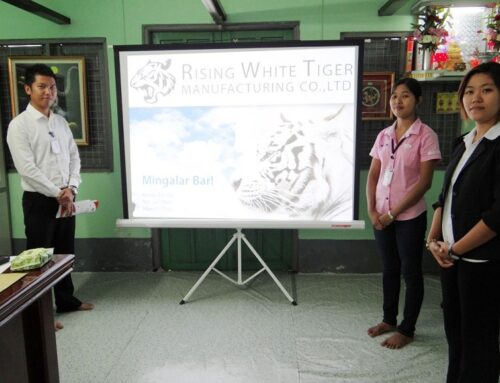
Christoph Burgener, Switzerland’s Ambassador to Myanmar, discusses the country’s strengthening ties to Europe.
European Times: What will be the effect of the peace process on Myanmar’s development?
Christoph Burgener: The peace process, which should culminate in a “nationwide ceasefire” in 2014, will integrate over 14 armed groups and will lead the way to political dialogue between these groups and the government. A political-dialogue will determine among others the strength of regional authority, the control over revenues from natural resources and the security sector reform.
European Times: What is the Swiss Embassy’s role in the peace process?
Christoph Burgener: The embassy provides advisors, including a Human Security Advisor who shares Switzerland’s experiences in democracy, federalism and peace process. We also support many ethnic minority groups by sharing this knowledge with them.
European Times: What are some trends in Swiss investment in Myanmar?
Christoph Burgener: Until a few years ago, mostly small Swiss tourism companies were present here. After Myanmar opened up, more Swiss companies came in a process many described as “from embargo to El Dorado”. While some companies have delayed entry because of infrastructure and banking challenges, many others are still considering Myanmar, especially if they already have a presence in Southeast Asia. We want to make sure that Swiss companies respect Myanmar’s environmental and social concerns.
Switzerland is providing over €21.7 million in support for Myanmar through the Swiss Development Corporation. We are setting up the programme now. It will be active in agriculture, healthcare and vocational training. The Swiss are champions of vocational training and this part of the project will be partly run out of a Yangon-based NGO called the Centre for Vocational Training, which does incredible work. It processes about 100 students a year and places a high value on real-world experience. We want to extend similar models to south-eastern Myanmar, specifically the Mon and Kayin states, where we are looking to build infrastructure, health facilities and schools but also provide training and education. We want people in these regions to see the dividends of peace.
European Times: What role can European FDI play in overcoming Myanmar’s challenges?
Christoph Burgener: If European investors can create a workforce here and respect social and environmental standards, the people of Myanmar will see that the changes towards democratisation and peace are worthwhile. The efforts of the Government of the Republic of the Union of Myanmar are excellent. The recent telecommunications tender awarded to foreign operators was conducted transparently and helped build investor confidence in Myanmar. Since the inauguration of President U Thein Sein in 2011, Myanmar’s economic landscape has been completely transformed by a slew of swift and social and economic reforms. With its rich natural resources, abundant labour force and strategic location, the country shows great potential for growth. But many challenges are lying ahead.





